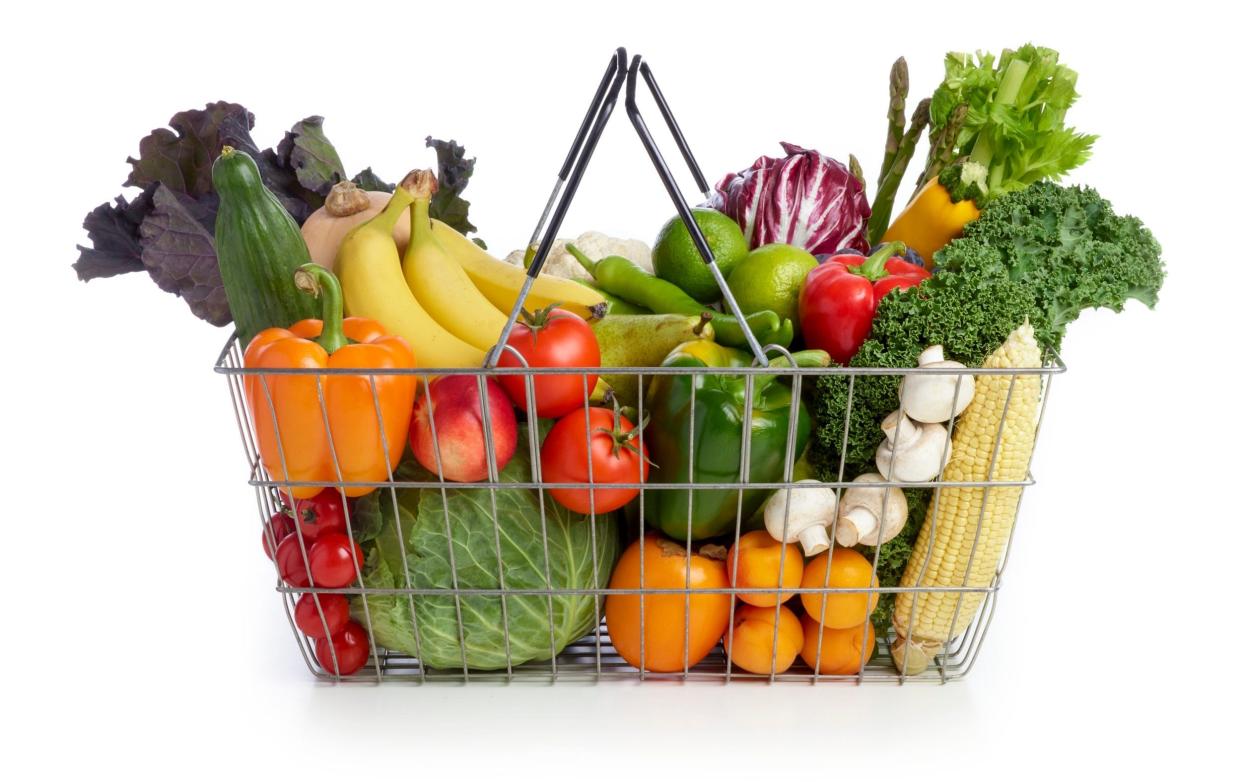Could prescribing fruit and vegetables help us become healthier?

There is a near-panacea that can lower the risk of heart disease, stroke, diabetes, cancer and high blood pressure. It has no side effects, or long-term problems and is very cost effective. And it’s a box of fruit and vegetables.
According to the recently-published National Food Strategy, an independent review by restaurateur Henry Dimbleby, giving out free fruit and vegetables to some people could be hugely beneficial for their health. The report also notes that improving people’s diets could save the NHS money by preventing health conditions that need costly treatment: apparently for every £1 spent on preventing bad health, there is a reduction of £14 of costs for treatments later on.
Under the proposal, GPs would be responsible for handing out prescriptions for the healthy food to people who were either on low incomes or otherwise at risk of suffering from “diet-related illnesses”. The report suggests that the food be paid for from taxes on foods that are high in salt and sugar.
These prescription schemes have already been trialled in other countries, including one in Pennsylvania, USA. The Fresh Food Farmacy is a partnership between a food bank and a healthcare company, which gives out the ingredients for 10 healthy meals a week to diabetics experiencing food insecurity – where they are not getting certain and steady access to nutritious food. Alongside the food, patients are given free workshops on healthy eating, cooking and ways to manage their diabetes.
The scheme has been a success so far, with “significant improvements” seen in blood sugar levels, cholesterol and blood pressure. The scheme says patients are also seeing improvements in their mood, and confidence in their ability to manage their condition. Given the success, the scheme has been expanded to 700 participants, with full efficacy results to be released next year.
The financial results look good too: another US study found that a fruit and vegetable prescription cut blood sugar levels in diabetic patients over 13 weeks at a cost of just $40 (£28.65) per patient.
The health results of the programme are not a surprise, says Lily Soutter, a registered nutritionist with a practice on Harley Street, London. Fruit and vegetables contain three groups of compounds that are beneficial to health: vitamins, polyphenols and fibre, says Soutter.
The first group may be the best-known benefit of plant foods: vitamins A, C, E and minerals like potassium and folate are found in high quantities in fruit and vegetables. They are essential for the proper functioning of many systems in the body.
Polyphenols are a less well-known and well-studied group of over 8,000 chemicals found in plants. They have wide-ranging effects on the body, from lowering blood sugar to controlling inflammation and may even help to prevent cancer. “A lot of these plant compounds are under research on their links to wellbeing, especially for lowering the risk of cancer, cardiovascular problems and potentially mood problems”, says Soutter.
The fibre they contain is important, too. The NHS recommends a minimum of 30g a day, with the average adult eating 18g, or just over half of what’s recommended. This can be causing issues, says Soutter: “You need to have sufficient fibre within the diet which can help to maintain a healthy gut microbiota”.
Fruit and vegetables also tend to have a low calorie-density, meaning that a plate of broccoli would have fewer calories than a similar amount of meat or cheese. That, plus their high fibre content, can help to improve feelings of satiety, which can indirectly lead to other health benefits, says Soutter. “They’re also low in calories so may help individuals to maintain a healthy weight, and fibre helps with satiety, which keeps us fuller for longer,” she says.
Rachel Ledwith MBE, head of community at the Felix Project, has seen first-hand the difference that free fresh food can make. The charity collects surplus healthy food from supermarkets, wholesalers and restaurants, and delivers it to people in need.
Their deliveries are 40 per cent fresh fruit and vegetables, and last year, they gave out the equivalent of 21.1 million meals, which according to Ledwith have made significant changes to physical and mental health.
She explains that some of the best results can be seen in children, who need nutritious food as they grow. Over the summer holidays, they donate healthy food to children on holiday activity programmes who become “more active” and “their development continues” with access to the nutrient in fruit and vegetables.
The deliveries can also be beneficial for the mental health of recipients, she says, giving the example of the homeless people they support. “When they’re provided with a hot meal, it’s a sense of comfort that someone is caring for them and knows they exist”, she says.
But there are some people who are not keen on the schemes. Despite the health benefits, not all NHS staff agree it’s the best way forward. The Royal College of General Practitioners responded to the report, saying that it wasn’t “appropriate” for GPs to prescribe healthy food to patients.
“Having conversations with patients about their lifestyle can often be sensitive, and this takes time”, said Professor Martin Marshall, the College’s chair. “This is particularly difficult within the constraints of the standard 10-minute consultation.” Other doctors tweeted their opposition, saying that prescribing fruit and vegetables “medicalised” healthy food.
The Prime Minister voiced objection to some parts of the review, too, including the proposals to tax sugar and salt. Whether fruit and vegetable prescriptions in the UK will become a reality is still unknown, but may be clear in six months when the government promises to issue its full response to Dimbleby’s report. Whatever the outcome, it’s clear that there may be some significant health benefits from eating a bit more fruit and veg.

